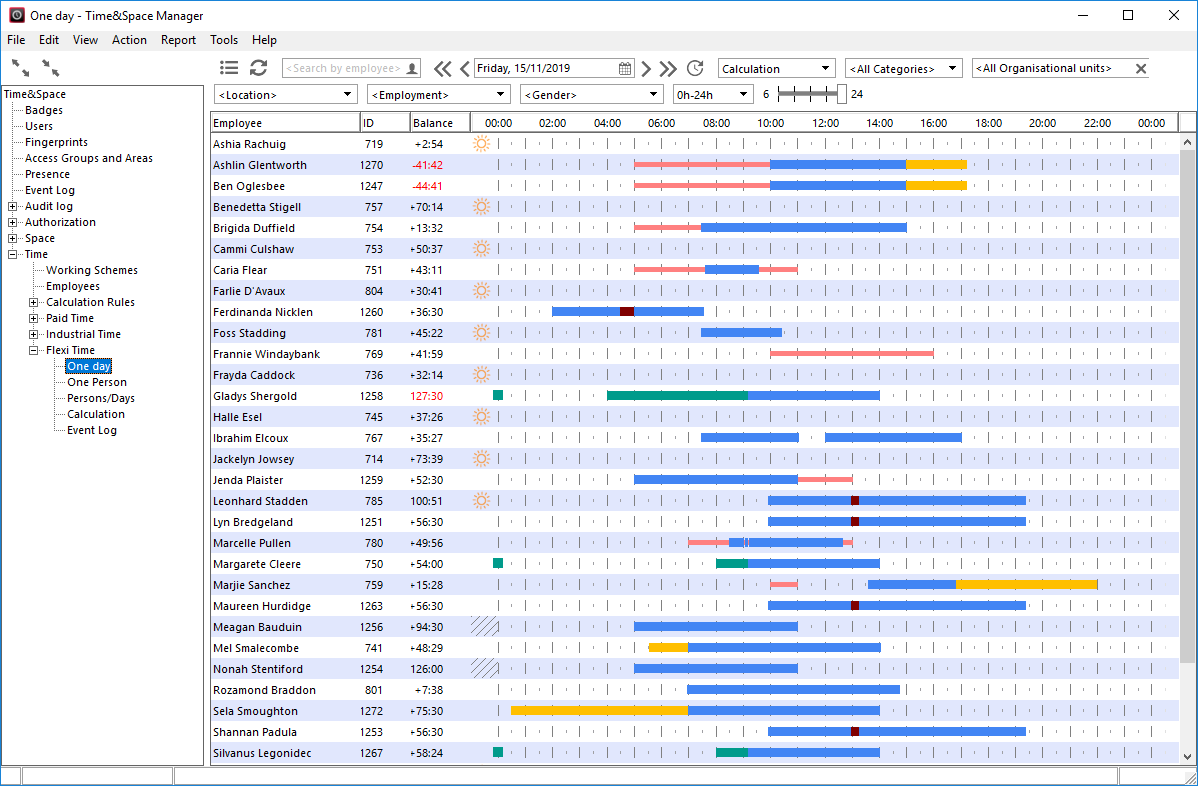TOP 8 TIME MANAGEMENT MYTHS
Why do we need a time & attendance system? Well, obviously because today nobody does such things by hand. So, assuming that we care about working time, we need a computerized system to manage it. But why should we care about working time in the first place?
Many organizations today do not have the luxury of even questioning the need for a time & attendance system. They just have to have it. Large companies, banks, institutions, government offices, hospitals, factories, hotels; they all need a system to manage complex work schedules, overtime, flexible working hours, shift planning, health insurance benefits, union rules, government legislation, automatic payroll calculation, HR management requirements, you name it. For them the benefits are clear, and the reasons are self-evident.
But not every situation is that clear. Some companies still don’t feel much pressure to track and monitor working time. And, there are also regions of the world where, for cultural and historical reasons, time does not play the same role in the economy as in the western world. So questions do arise, some more substantive and some less. But some of these questions are based on serious misconceptions or just plain myths.
Although we are not exactly impartial observers, let us nevertheless offer our perspective. If nothing else, think of it as a thought-provoking point of departure for making your own business decisions. Here they are:

Myth No. 1: It is for simple, strict rules, and low-wage labor only.
Quite the opposite. Why would anyone need a computerized system for a simple headcount? The more complex your working time rules, the more you need a system to keep track of everything.
Myth No. 2: It is just for enforcing discipline.
No doubt, a time management system can help enforce good old working discipline. However, it is much more interesting to do it the other way! A time management system allows as much flexibility as anyone needs. Since everything is automatically recorded and calculated up to the minute, you can actually afford more relaxed rules, optimized for each individual position.
Myth No. 3: It is backward thinking and behind times.
Not really. Plain old rigid discipline might be considered unpopular and out of fashion. But as we have already pointed out, time management is far from being just about discipline. Modern businesses care about resources, and time as a resource is maybe the most valuable resource of all. Modern employees care about their working time just as much as they care about their free time. Time is an asset for both employee and employer. And negligence is never in fashion, especially in business.
Myth No. 4: Time is not important, what matters is productivity.
This one is easy. How on earth can anyone measure productivity without knowing the time spent on a task? Isn’t productivity defined as the ratio between net effect and time required? Isn’t it measured per hour? Time is the key element of the equation.
Myth No. 5: Time is not important, results are.
Being focused on results is good. But does that mean that nothing else matters? Can you drive a car just by pushing the pedal? Just as a car needs steering and navigation, every business needs proper management. Time is a resource directly connected with all aspects of work. Results are just what we see at the end of the chain.
Myth No. 6: It does not pay off if you are small.
Well, before jumping to conclusions it is always a good idea to make a quick calculation. We do not even have to be very thorough and take everything into consideration. There is a good old, brutally simple, back-of-the-envelope formula for calculating ROI for any time management system. You might be surprised at how small is too small! Check the frame below:
SIMPLE SAVINGS CALCULATION
Saving per day (4 events, 3 minutes each): 12 minutes.
Hour rate (average in EU, 2018): 27,4€.
Net savings for 5 employees over two years: 13.700€.
Myth No. 7: It does not fit into the creative environment.
Heavy stuff. We have seen that it actually allows work rules to be relaxed, and optimally adapted to each individual’s work habits and needs… Not enough? OK, for example, we have two creative employees. Wouldn’t we want to know that one needs typically 40% less time for the same creative output? Still does not matter? Perhaps we have a deadline to catch… Aha!
Myth No. 8: We are not paying any overtime anyway.
If your worktime is really very simple, then perhaps the main reason for having the system is overtime tracking. If there is no overtime, then perhaps access control and an Excel sheet are all you need. But wouldn’t you want to have some record of who did which shift, who was missing and who was the replacement. Maybe also some record of absences due to sickness and other reasons? And while we are at it, perhaps some vacation planning and tracking?
***
We have dealt with some most frequent time myths about not needing a time management system. This is not to say that absolutely everyone needs one. There are always exceptions, and “why” is always a perfectly legitimate question to ask. Asking it early on can help you focus on selecting the best solution, unburdened by elementary doubts and second thoughts. We hope the views presented here have helped in that direction.

October 22, 2019
